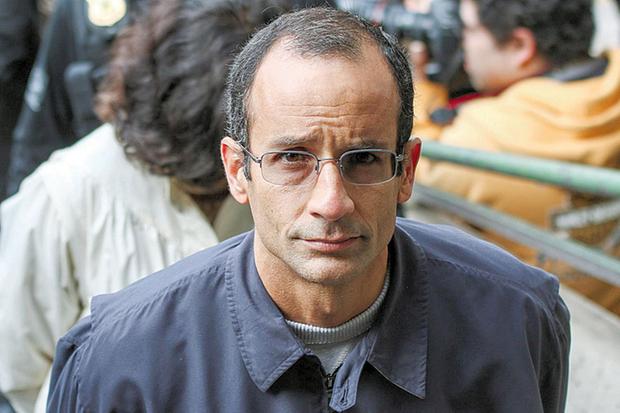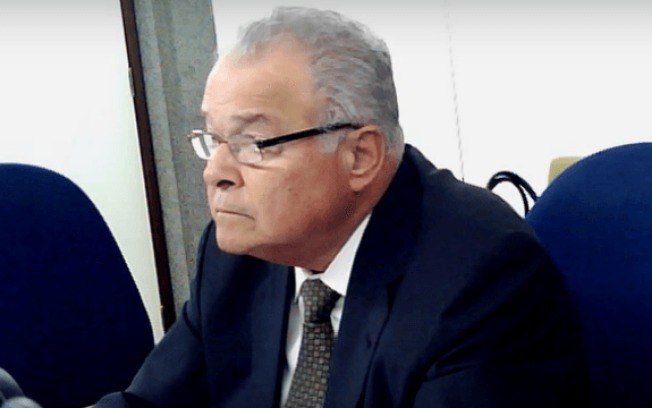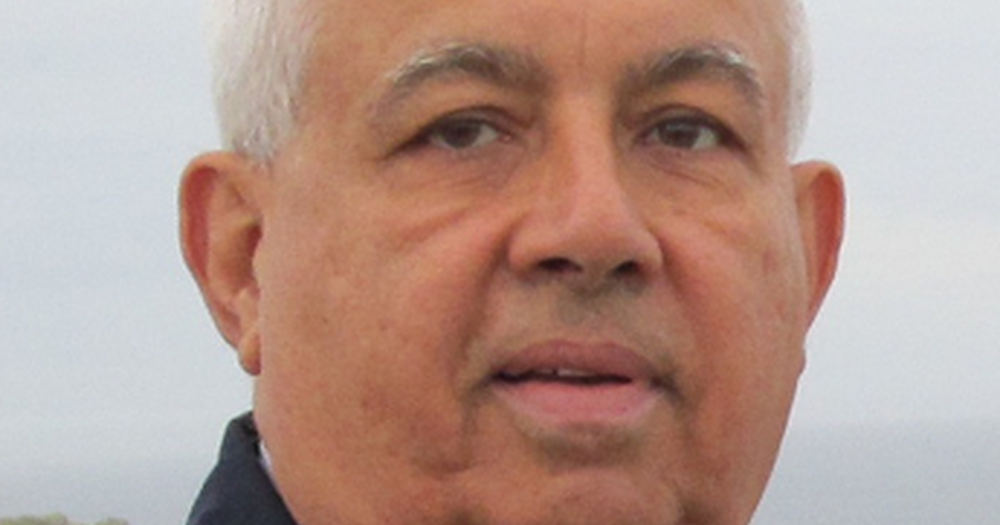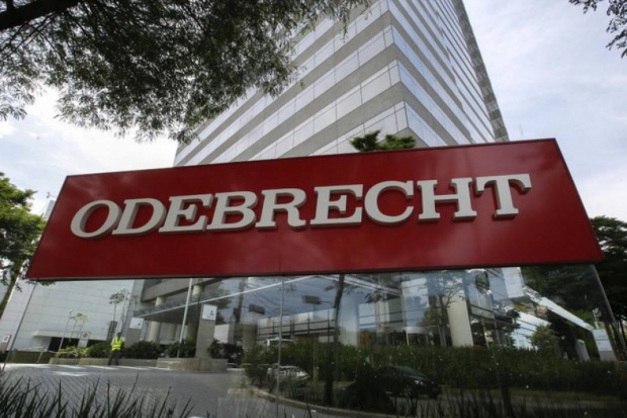RIO DE JANEIRO, BRAZIL – In recent days, entrepreneur Marcelo Odebrecht, 51, has been forwarding emails to family members and Odebrecht directors with complaints that reach key people at the group’s management.
On the whole, the messages bring discussions and complaints that the entrepreneur has been making internally since he left prison in December 2017, but which were restricted to a small group.

His father, Emílio Odebrecht, his brother-in-law, Maurício Ferro, who has served as the group’s legal director and is married to Mônica Odebrecht, as well as Ruy Lemos Sampaio, an executive who took over the position of chairman of the holding on Monday, December 16th, are the targets of criticism.
According to the messages to which Folha de S.Paulo had access, Marcelo built a theory on the reasons that led Odebrecht to the current situation. The company is going through one of the largest judicial reorganizations in the country’s history, with debts that reach R$98.5 (US$25) billion.
Many of the emails detail the content of a 64-page draft that Marcelo himself wrote and sent to the company’s executives, including the compliance area (responsible for good corporate practices).
In one of the messages, the entrepreneur expresses his intention to send the draft to Lava Jato’s task force.
Family issues feature in many messages. Until today, for instance, Marcelo tells that he never managed to accept what he calls “Mauricio Ferro’s betrayal”, who was even arrested on suspicion of corruption.
He writes that “the greatest loss was not even the R$200 million stolen, but everything he did, destroying Odebrecht and family relations, to hide this theft”. The alleged embezzlement is still under investigation.

His father is also cited. Even though he does not state it directly, Marcelo blames Emílio for many of the mistakes that would have led to Odebrecht’s judicial reorganization, mainly by omission. Son and father broke off relations when Marcelo was still serving time in Curitiba.
In one of the emails, Marcelo questions an operation made by Emílio. According to him, his father would have emptied out Kieppe, Odebrecht’s controlling family holding, by acquiring for himself farms valued at R$600 million and having made the payment with Kieppe’s shares, and not with his own funds.
Marcelo says in a text that Kieppe’s shares “had a totally questionable value since 2016 and today are worth virtually nothing”.
His father, according to Marcelo, used his power in command to appoint executives who had a “conflict of interest”. In his assessment, the chosen ones did not focus on business management and often took decisions for their own benefit and in detriment to Odebrecht.
Marcelo particularly questions the choice of Sampaio to take over the group’s board of directors and, more recently, the position of CEO, arguing that the executive acts in favor of Emilio’s interests and of his own, including to avoid investigations that could incriminate him.
In one of the emails, Marcelo reports to a group of directors, including compliance director Olga Pontes, that “there is strong evidence, including records on My Web Day and Drousys [systems used by the company to manage kickback payments], that RLS [acronym for Ruy Lemos Sampaio], the representative chosen by the trustee [Emílio Odebrecht], received or intermediated unlawful payments. This among other facts, such as obstruction of justice, that need to be urgently ascertained”.

The entrepreneur also says Sampaio worked to prevent his actions from being uncovered. “In the scope of ODB [an acronym for Odebrecht], however, RLS not only managed to block the investigations, bypassing all the commitments we assumed publicly and with the authorities, but also set off a rancorous journey of personal revenge [against Marcelo]”.
The contractor details that he requested internal investigations on the facts, which would have been blocked by Sampaio.
Marcelo says some of these payments, which Sampaio would have monitored, have already been identified in the criminal lawsuit on the Atibaia ranch.
The information involving Sampaio, incidentally, is in a technical opinion made by the defense of former President Luiz Inácio Lula da Silva. In it, accounting expert Claudio Wagner emphasizes: “Aiming to identify the initials ‘RLS’ and not leave any margin for supposition, we have located these initials on six other occasions in the spreadsheet [that registered kickbacks]”.
The conflict of interest issue is a recurring topic in the emails and refers back to the agreement signed with the DoJ (the United States Department of Justice).
Marcelo says it is necessary to investigate the exchange of the American law firm hired by Braskem, still in January 2015, in alignment with the DoJ, to start the independent investigations within Braskem.
“In this regard, everything suggests that this exchange was part of the strategy of, under Braskem’s leniency agreement, to provide only ‘controlled information’, both to the Brazilian authorities and to the DoJ,” says Marcelo in the draft sent to the head of compliance.
According to him, “the exchange of the American law firm hired by Braskem also seems to be part of the strategy (or ‘cascading effect’) of actions to obstruct the investigations”.
“They acted in bad faith, when not criminally in the understanding of the collaborator (Marcelo), when negotiating the agreement with the American authorities, in evident damage not only to the truth of the facts but also to the effectiveness of the collaboration and the collaborators themselves. It is also worth mentioning the immense tangible and intangible damage that it brought to Odebrecht in its international operations. A loss that surely exceeds US$5 billion in assets (mainly concessions) and construction contracts abroad,” reads the draft.
Marcelo also states that this was “the main cause for Odebrecht’s economic deterioration since 2015 and that ended up leading Odebrecht S.A. and several of its subsidiaries to the current serious financial situation with virtually all companies under judicial or extrajudicial reorganization”.

The company signed a collaboration agreement with the DoJ in December 2016, and the department made public part of the indictments, exposing kickback negotiations in several countries where the company operated. It was after this procedure that the company lost contracts and income in these locations. Marcelo still makes recurrent criticisms to the lack of transparency of the company’s command, mainly in relation to judicial reorganization.
When he was informed that Odebrecht was looking for an opinion to justify the failure to disclose this information, he answered in an email: “Opinion is sought to protect a decision you want to make, not to make the right decision.”
The most recent chapter of the differences occurred a week ago, on December 12th, when Ruy Sampaio called for the resignation of Zaccaria Junior, then director of press relations for Odebrecht. Zaccaria acted as Marcelo’s press officer, and this was used to justify his dismissal.
The resignation announcement was poorly received internally. Luciano Guidolin, then president, made his position available and was followed by the HR director, Daniel Villar.
Ruy Sampaio then took over the company, triggering Marcelo’s hard reaction. “It’s an aberration, in every sense, he [Zaccaria] being fired for doing exactly what was guided by the company/its leaders: to support me in the contact with the media, precisely to ensure, given the impact of everything I say, the alignment of my positions with the company”, says Marcelo in an email addressed to Alexandre Assaf, from the construction company’s ethics committee.
From then on, Marcelo brought up issues that, until then, were restricted.
When contacted by the reporter, Marcelo Odebrecht said that “everything he has to say has already been declared to the company and the authorities”.

